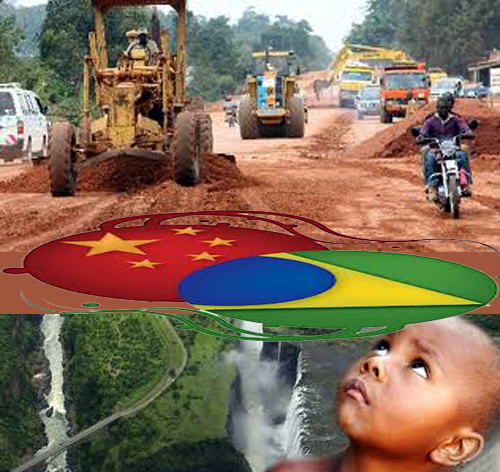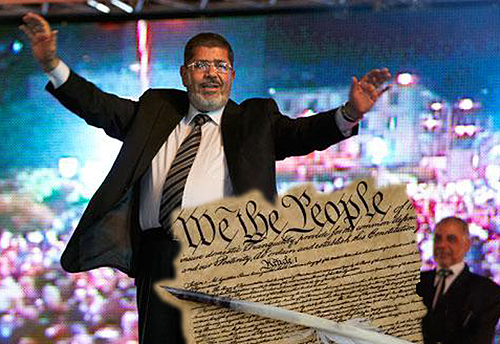Tremendous new natural resources have been discovered in Tanzania; some say that’s why Obama visited there recently. Isn’t this good news?
Many including myself have lamented African development over the last half century, flipping from feeling totally pessimistic to totally optimistic in the course of a few elections or natural catastrophes.
But always the bugaboo has been the culture of dependency presumed intrinsic to any society deft of natural resources and not yet matured of any of its own technology or innovations.
That has changed dramatically in the last decade with the discovery of so many now extractable resources that were either not known or too deep or complicated to collect in the past.
Almost 20 years ago the world’s second largest gold reserve was discovered in Tanzania near Lake Victoria. And for twenty years we’ve watched the Tanzanians botch one mining deal after another, screw up every national taxing proposal that’s reached the legislature, and kill and main hundreds if not thousands of mine workers.
And now, enormous new natural resources are being discovered in Tanzania almost daily.
The most impressive are new uranium deposits. In fact, such huge reserves have been found that the Tanzanian government quickly created a “Tanzania Atomic Energy Commission.”
(Sad that its website, thrown up in a few days, is better than for the national parks.)
In Arusha recently, President Jakaya Kikwete said, “If all the reserves we have are fully exploited, Tanzania can become the seventh leading uranium producers in the world,” said Kikwete.
Already Mantra Resources and a Russian firm ARMZ have entered into a joint venture to mine uranium. Tanzania has so far confirmed the presence of multiple thick zones of sandstone-hosted uranium mineralization at shallow depths at the “Nyota Prospect” where it is presumed there are 35.9 million pounds of extractable uranium.
That’s a lot.
But there’s more. Coal, and (good grief!), diamonds.
But even more, still:
Unimaginable numbers of deaths and disabilities from the local Tanzanians so far employed to extract these resources. The latest was only several weeks ago. I don’t understand why progressives are livid with the sweat shops supplying Walmart and Nike, but shrug at the horrific deaths and disabilities Tanzanians suffer every single day.
Last week the estates of numerous gold miners who died at the horrendous Barrick Gold mine near Mwanza filed suit for shameful work practices.
Yet there was more support in the media for the mining company than for the miners. Well, I guess it can make sense: After all, gold has declined in value, and the owner of the mines just took a $700 million writeoff on the quarter’s earnings.
Tanzania isn’t handling all of this very well.
I suppose that’s understandable, since the government of Tanzanian doesn’t handle anything very well. But this is, literally, a “gold mine” for the population, if the government can get its act together.
So far, it hasn’t, and it’s incredibly depressing.
Mining licenses are being given out willy nilly at the entire discretion of President Kikwete; there is no vetting process, and currently, there is no national policy regarding taxing or royalties.
Current Tanzanian law, which enshrined local control of local lands (sometimes to a ridiculous extent, see my blogs on WMAs and other big game related lands), is being completely ignored.
Near the capital, Dodoma, a mining company several months ago began digging giant wells without even advising the local community at Bahi Makulo what they were digging for and who they were. An expert has surmised it was Mantra Tanzania, a subsidiary of a Russian mining group.
When confronted by local officials, the management offered a handful of jobs instead of explanations, which were readily accepted. These jobs included handling chemicals that weren’t identified, and without any training.
It’s likely that at least one of the chemicals was mercury. Human Rights Watch has consistently bashed Tanzania for being one of the lone countries that has refused to sign a mercury chemical standard treaty.
Numerous human rights violations by multiple mining companies in Tanzania, and the refusal of the Tanzanian government to enforce its even poor but existing laws, has left the population completely unprotected.
Feeling totally marginalized, many Tanzanians are now desperately trying to mine gold on their own, like the original gold rushers of the 1850s. It’s dangerous and mostly unproductive, and the government is doing nothing to either regulate or discourage it.
It’s a crying shame Tanzania’s been unable to get its act together over the last two decades since Lake Victoria gold was discovered. Now with uranium, diamonds and more, that sadness has turned to desperation.

